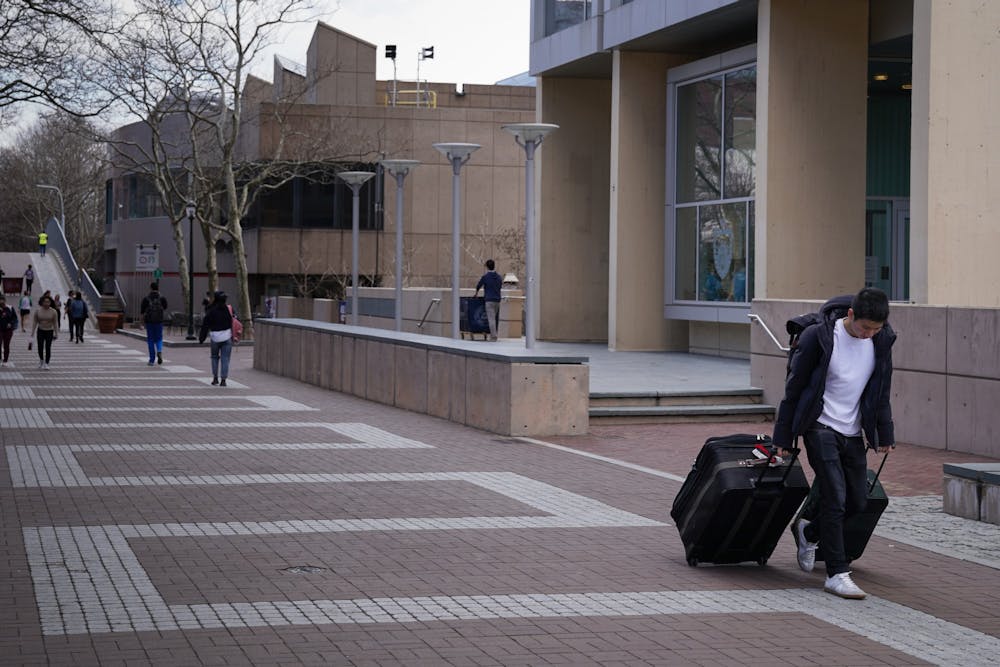As the fate of the fall semester remains uncertain, some Penn students are considering taking a leave of absence if the semester is conducted online. University administration said they have no plans to amend the current leave of absence policy for the fall.
Students said finishing their spring courses online has been difficult and they want to avoid taking classes online again in the fall. Other students added that they do not want to pay the full price of tuition for the fall semester if classes are remote, because of diminished course quality and inability to use many campus resources.
Students can request a leave of absence until the end of the second week of classes with a full-tuition reduction. Vice President of University Communication Stephen MacCarthy wrote in a statement to The Daily Pennsylvanian that the University has no plans to amend its leave of absence procedure for the fall.
“Requests for leave are typically granted if they meet that deadline,” MacCarthy wrote.
Colleges around the country are mulling a range of potential solutions for the fall semester amid the coronavirus pandemic. On Monday, Penn announced in an email to students that the University is considering a combination of virtual and in-person classes for the fall but does not yet know when on–campus learning can continue. Many other schools are deferring final decisions about the fall to later in the summer, while some said they are expecting to open as normal.
Incoming first-year Brandon Sayler said that he believes classes will still be remote during the fall and is currently planning to take a gap year. He said he is looking for work and volunteer opportunities but expects to work a minimum wage job.
Sayler said he does not think it would be worth participating in virtual instruction because he wouldn’t be able to complete undergraduate research and he has trouble with his attention span.
“I would flounder in online school,” Sayler said.
Sayler said he would be disappointed to miss out on New Student Orientation, both for the fun experience and the opportunity to make friends.
College first-year Megan Zhong said that if courses remain online, she will consider taking the semester off. As a first-generation, low-income student, she is worried about textbook access without being able to use the FGLI library on campus. She added that she thinks that the quality of instruction is diminished online.
“Buying textbooks would be almost a waste of money,” Zhong said.
During her semester off, she said she will consider taking cheaper community college courses. She also said she would be open to enrolling in fewer courses in the fall or taking required humanities courses that don’t require expensive textbooks.
College first-year Hiba Fatima Hamid also said that she will consider taking the fall semester off.
She said she feels less productive with online classes and finds her new online exams much harder than tests on campus. She said she is also frustrated with academic dishonesty she sees in her courses.
“I don’t know if I can do this again for another semester,” she said.
Wharton sophomore Ananya Sangwan said she was planning to graduate a semester early. But if the fall semester remains online, she said she will take the semester off to do volunteer work.
Sangwan said that as an international student from India, she is unable to watch any of her classes live and ask the professor questions.
“I’m not learning anything,” Sangwan said.
College junior Owen Voutsinas-Klose was also planning to graduate one semester early, after this upcoming fall semester. Now, he said he may spend the fall semester working on the upcoming presidential election, traveling, or studying for the LSAT before returning to campus in the spring.
He said online classes do not allow him to work closely enough with professors. He also approximated that his classes only make up 15% of his college experience, even when he is on campus, and returning for the fall would not justify the full price of tuition.
“Maybe if they made it a tenth of the price I’d come back,” Voutsinas-Klose said.









